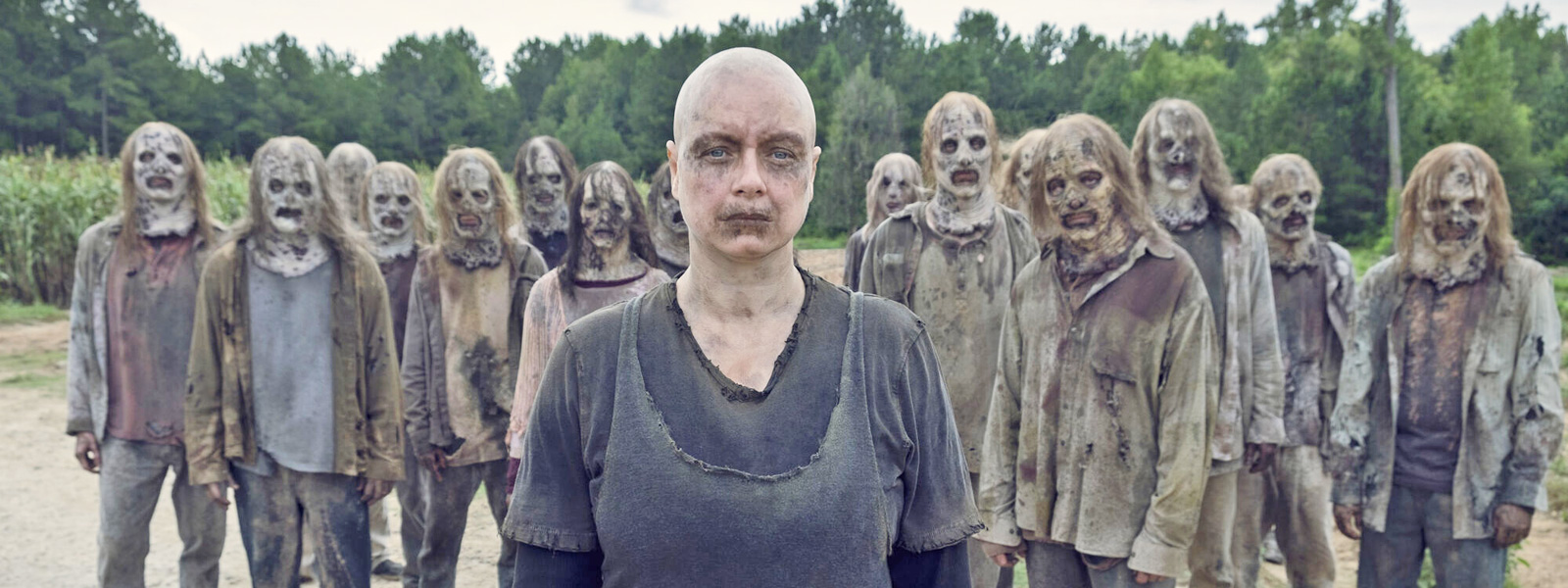The Walking Dead‘s gearing up for its 11th and final season (which debuts on AMC on August 22 and AMC+ a week earlier) after releasing a trailer to mark the beginning of the end (of the flagship show in 2022), yet the universe won’t be ending anytime soon. Instead, the universe is plowing full steam ahead with more Fear the Walking Dead, which has gained new life heading into Season 7. The intellectual property seems to show no end in sight for spinoffs — and more billions of dollars in revenue — including the in-process The Walking Dead: World Beyond and more on the way, like the Carol-Daryl spinoff in the future and those long-awaited Rick Grimes movies. So, this zombie-universe’s comic-book creator, Robert Kirkman, would like to make sure that he’s getting his desired share of profits going forward.
That’s a stance that Kirkman has been pursuing in court for several years. Original The Walking Dead showrunner Frank Darabont recently fared quite well (to say the least) when his lawsuit ended in a $200 million settlement. However, Kirkman’s efforts recently received a hefty blow after contract interpretation by a judge, who decided in favor of AMC when it came to “express terms of the parties’ contracts.” The judge ruled that these terms would override any “fairness” arguments by Kirkman and multiple other executive producers to increase their share of the pot.
Long story short? Kirkman cut his legal team loose and re-upped. Now, a judge has ruled that he can “pursue new legal theories and punitive damages” while seeking monetary relief. It’s an interesting twist, and The Hollywood Reporter reveals that the same judge (Los Angeles Superior Court’s Daniel Buckley) who shut down the most recent Kirkman legal attempt has had a change of heart. He will allow Kirkman’s legal team to present arguments on a pair of amended claims. The first claim involves fairness in contract negotiation, and the second one is more complicated but essentially accuses AMC Network of interfering with contracts that it wasn’t directly involved with. Here’s the legal-tech speak:
The first is alleged breach of the implied covenant of good faith and fair dealing. According to this latest theory, AMC knew it had a unilateral right to craft the MAGR term, waited until success of the series, and then specifically crafted defined profits to ensure plaintiffs would not recover under the circumstances. And the other is alleged tortious interference. This theory (one that may soon be imitated by others in the entertainment world) is that AMC Network — which didn’t have direct contractual relations with the show’s producers — had knowledge of its sister company’s dealings and intentionally induced a breach for its own advantage.
As always, the entire entertainment industry could be shaped by a case like this, especially when it comes to juggernauts like The Walking Dead, which not only sees a vast cable audience but is also streaming like gangbusters. Licensing deals will continue to fuel more dollars for the entire TWD universe, and it seems like Kirkman’s not letting go of his claims. The end result should reverberate throughout the entertainment industry as other shows gain additional life on streaming, so you know, stay tuned.
(Via Hollywood Reporter)







